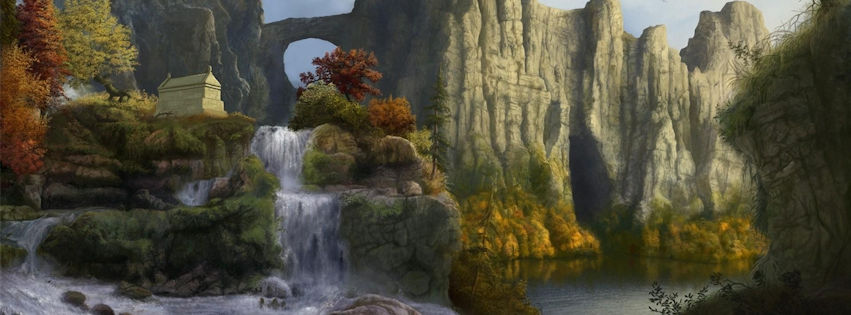Diaspora
Located on the western shores of the Okoniawai River, some hundred miles north of the Snaketail Delta, Diaspora is known as the 'Breadbasket of the Pridelands', as it features more than half of the permanently-settled farmland in the entire province.
In order to irrigate and maintain this massive endeavor, the city is home to hundreds of dams, levies, canals, bridges, and a multitude of waterways, earning it the title of the 'City of Great Works'.
In order to irrigate and maintain this massive endeavor, the city is home to hundreds of dams, levies, canals, bridges, and a multitude of waterways, earning it the title of the 'City of Great Works'.
Demographics
Diaspora is a very diverse city, split amongst the Tabaxi, Leonin, various Centaurs and Gnolls, the troll-like peoples calling themselves 'Trollkin', numerous Giff, even some well-mannered Grung. It is not, however, a wealthy city; the majority of the citizens are day-to-day peasants who work the fields, the dockyard, or tend to the Great Works; millions of pounds of goods travel through Diaspora down the Okoniawai River, but little coin remains in the city for long.
Government
Diaspora is governed by a strange combination of Clergy and Architects known as the Triumvirate, three mysterious figures who make the necessary decisions for the city while doing their best to remain in the shadows. They oversee what is necessary, and then allow the farmers and other workers to carry on their important work with little to no further input.
The Triumvirate controls the planning and managing of both existing and future dam works, canals and other projects, ensuring that the even the greatest inundation of the Okoniawai River does not destroy the vital fields which feed so many millions.
The Triumvirate controls the planning and managing of both existing and future dam works, canals and other projects, ensuring that the even the greatest inundation of the Okoniawai River does not destroy the vital fields which feed so many millions.
Infrastructure
Wind- and water mills dot the horizon, providing a place for tons of grain to be ground to flour and to operate the numerous locks and channels of the Great Works. Multitudes of canals, dams and other various waterways provide consistent irrigation to thousands of acres of fertile farmland, as well as providing a place for the excess water of the Okoniawai River to flood to.
Granaries, root cellars, and storage yards are everywhere within the city, as excess foodstuffs are stored anywhere they can be prior to export.
Besides food, the major industrial complex of Diaspora is toolmaking; axes and saws for the wood cutters, shovels and picks and hoes and scythes for the farmers, hammers and nails and bolts and screws for the keepers of the Great Works. If a man can wield it as a tool of their trade, it is, likely, crafted in Diaspora.
Granaries, root cellars, and storage yards are everywhere within the city, as excess foodstuffs are stored anywhere they can be prior to export.
Besides food, the major industrial complex of Diaspora is toolmaking; axes and saws for the wood cutters, shovels and picks and hoes and scythes for the farmers, hammers and nails and bolts and screws for the keepers of the Great Works. If a man can wield it as a tool of their trade, it is, likely, crafted in Diaspora.
Points of interest
The largest structure in the world, the Fertiti-Wali Dam Works, spans the entire width of the Okoniawai River, some four hundred feet in a single direction. Visitors often come to Diaspora to lay eyes on it, a structure which took more than twenty years to complete.
From it's great height, one can overlook the miles of farmland in every direction, broken occasionally by temple structures, including The Great Temple of Ramenses, the Patron God of the city.
From it's great height, one can overlook the miles of farmland in every direction, broken occasionally by temple structures, including The Great Temple of Ramenses, the Patron God of the city.
Architecture
The entire city is built on the concept of form-over-function; buildings tend to be non-descript, made of mud and clay from the local riverbed, inlaid with straw and hardened by the beating sun from above. The roads are hard-packed, but remain dirt and not gravel or cobblestone, as that is an expense on a luxury the Triumvirate would never allow.
Founding Date
-100
Alternative Name(s)
The Chosen City of Ramenses
Type
Trade post
Population
Approximately 30,000 permanent residents of numerous tribes and races
Location under
Included Locations




Comments